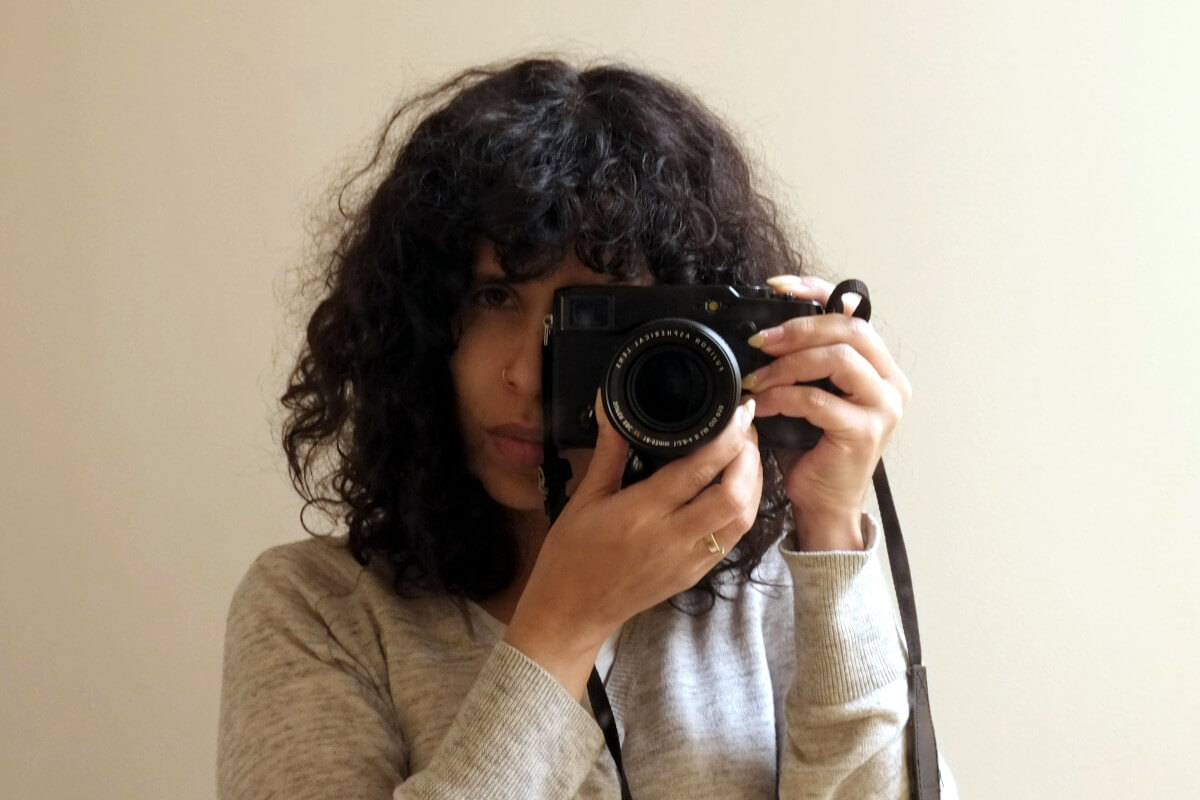Marta Pinto Machado

Biography
Marta Machado is Portuguese-Cape Verdean. She lives and works in Braga. She has a Master in Photography from the School of Arts of the Catholic University of Porto and a degree in Architecture from the University of Minho.
Her photographic work examines the ambiguities of history and its relationship with the so-called official narratives of the western world, focusing on the themes of colonialism, identity, and territory. Recently, she has developed “Nos Txôn“, a series that, through an autobiographical context, explores, between authorship and archive, the photographic image as a tool of signification – exhibited at the Imago Gallery in 2022 – and, in an artistic residence promoted by Encontros da Imagem, the project “Beyond Solid Ground” that will last indefinitely and was exhibited within the festival in Braga and Novi Sad.
In the academic field, she has published papers in the journals with scientific arbitration such as Interact: Revista Online de Arte, Cultura e Tecnologia, Aniki: Revista Portuguesa da Imagem em Movimento, and JSTA – Journal of Science and Technology of the Arts. Her MA thesis in Photography, “Nos Txôn: as Fotografias, a Memória e as Possibilidades de uma Narrativa no Discurso Pós-Colonial” [Nos Txôn: the Photographs, the Memory and the Possibilities of a Narrative in the Post-Colonial Discourse], is currently in press in book form by the specialised photography publishing house Pierrot Le Fou. She is also part, as a researcher, of the project TRACTS – Traces as Research Agenda for Climate Change, Technology Studies, and Social Justice, of St. Andrew’s University, and of the project Inhabiting Siza, co-hosted by the IHC – NOVA FCSH. She is a member of UNA – União Negra das Artes.
Research fields
- Architecture
- Photography
- History
- Anthropology
Selected publications
- Machado, Marta Pinto. “On Memory and Post-Truth: Through the Family Album,” Journal of Science and Technology of the Arts 14 (2022): 29-40. [PDF]
- Machado, Marta Pinto. “Memória e as possibilidades da narrativa no discurso pós-colonial,” Interact. Revista Online de Arte, Cultura e Tecnologia 35 (2021). [PDF]
Main projects
- Research fellow of the project “Inhabiting Siza” — Coordinated by Eduardo Ascensão (CEG-IGOT) and Paulo Catrica (IHC — NOVA FCSH), and funded by the Foundation for Science and Technology (SIZA/UES/0020/2019).
Search
Events
março, 2026
Tipologia do Evento:
Todos
Todos
Colloquium
Conference
Conference
Congress
Course
Cycle
Debate
Exhibition
Launch
Lecture
Meeting
Movie session
Open calls
Opening
Other
Presentation
Round table
Seminar
Showcase
Symposium
Tour
Workshop
- Event Name
seg
ter
qua
qui
sex
sab
dom
-
-
-
-
-
-
1
2
3
4
5
6
7
8
9
10
11
12
13
14
15
16
17
18
19
20
21
22
23
24
25
26
27
28
29
30
31
Não Existem Eventos
News
VINCULUM — An end and a new beginning
Feb 24, 2026
FCSH hosted the closing session of the VINCULUM project
In March, Lisbon becomes the Capital of International Intrigue
Feb 21, 2026
Between 2 and 31 March, at the Portuguese Cinematheque
Anita Buhin is on a research mission in Italy
Feb 20, 2026
She is now a Visiting Researcher at CAST, University of Bologna
CONTACTS
WORKING HOURS



